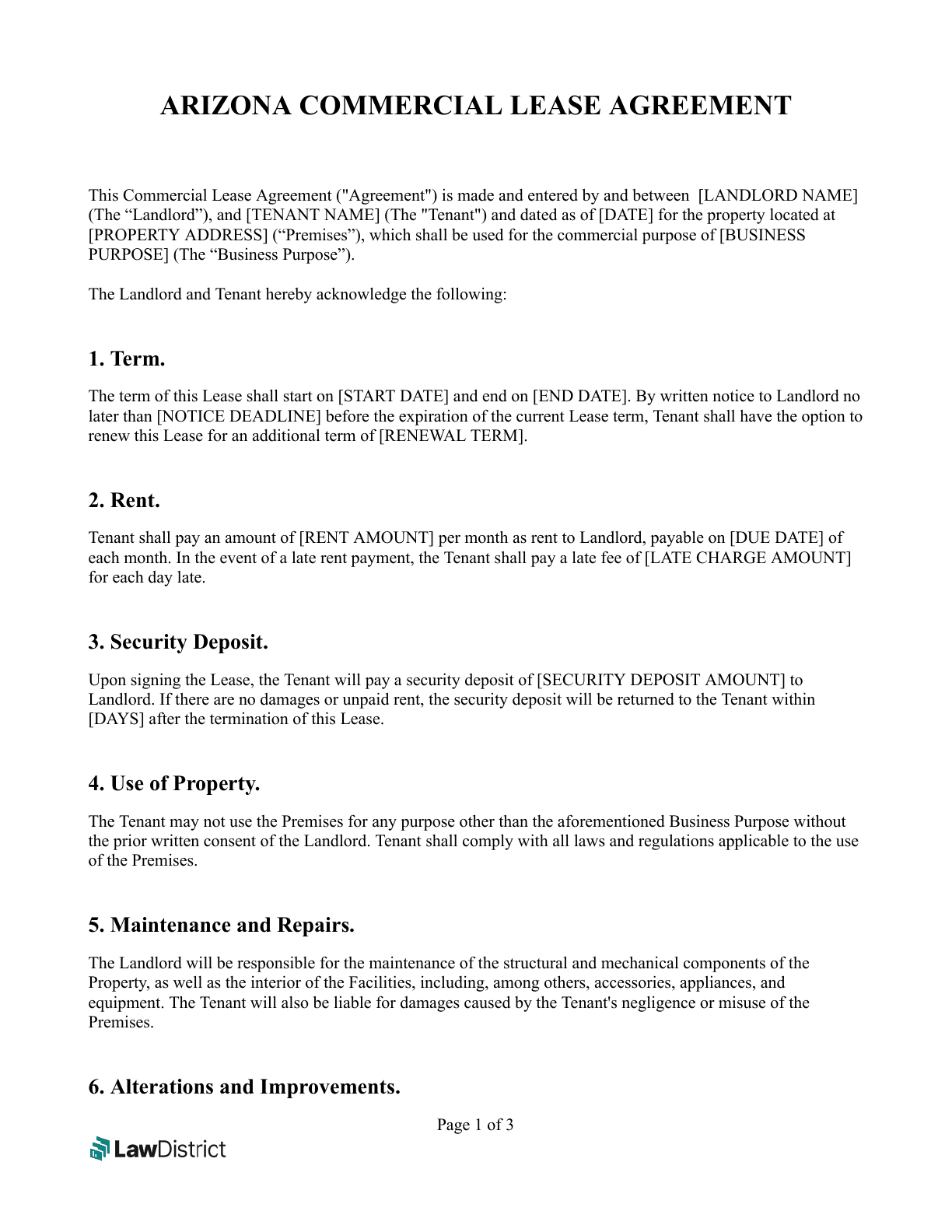Arizona Commercial Lease Agreement Form
An Arizona Commercial Lease Agreement typically lists the terms and conditions for leasing commercial property within Arizona. This document is a legally binding contract between a landlord and a business tenant.
Unlike Residential Lease Agreements, Commercial Lease Agreements are used when leasing retail spaces. Office buildings, industrial properties, and other non-residential properties are often leased out with this document.
Commercial lease agreements are often long-term commitments. Both the landlord and business tenant should know their rights and obligations under Arizona law before signing this lease.

What Must Be Disclosed in Arizona Commercial Lease Agreements?
Landlords must provide specific disclosures to potential commercial tenants under Arizona law.
Before leasing a commercial property, landlords must disclose:
- Americans with Disabilities Act (ADA) compliance: Businesses open to the public or that employ more than 15 employees must be ADA compliant. If the property must comply with ADA regulations. The landlord and tenant should negotiate who is responsible for any required modifications. This should be included in the Lease Agreement form.
- Hazardous materials: If a property contains hazardous substances, Arizona-based landlords must inform tenants. Examples of these substances include asbestos, lead-based paint, and chemicals that could harm health.
- Shared utilities: If utilities are shared by several tenants, the lease needs to explain how the costs will be divided and billed.
Arizona Commercial Lease Grace Period for Payment of Rent
There is no set grace period for commercial lease rent payments in Arizona. If the landlord decides to include a grace payment in the agreement, this should be clearly indicated on the Lease Agreement form.
Any conditions regarding the grace period, such as its duration, should be included.
Security Deposits in Arizona Commercial Lease Agreements
Security deposits protect landlords against damages, unpaid rent, or lease violations.
These are the security deposit regulations that you should be aware of when leasing commercial property in Arizona:
- Deposit limit: There is no set maximum limit for commercial security deposits under Arizona law. The landlord and tenant should negotiate this amount before signing the Lease Agreement.
- Non-refundable deposits: The Lease Agreement needs to clearly state if any part of the deposit is non-refundable.
- Return of deposit: Arizona law does not set a deadline for returning commercial security deposits. However, the Lease Agreement should specify when the deposit will be returned. It should also mention if there will be any deductions for repairs or unpaid amounts.
Helpful Resources
For more information on Arizona Commercial Space Lease Agreements, refer to these official resources: